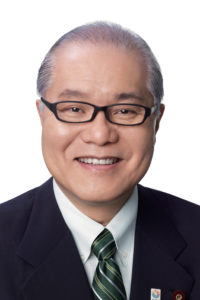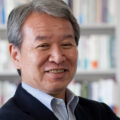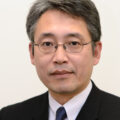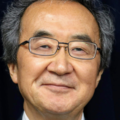The Current Situation of International Health Diplomacy and the Role of Japan
The ability to solve and contribute to issues related to health is evaluated as a diplomatic capability of a country. International health diplomacy, which was set in the agenda of the G7 Ise-Shima Summit 2016, will finally start on a global scale. What issues exist and how should Japan contribute?

Takemi Keizo, member of the House of Councilors
Globalization is the rapid and massive cross-border transfer of people, things, money, information and technologies. It connects societies, economies and communities beyond national borders and is the engine of global development. As a result, the world has become rich and health standards have also improved.
On the other hand, in the 21st century, many infectious diseases, including severe acute respiratory syndrome (SARS), the Ebola virus and Zika virus, have spread globally at a never-before-seen pace and scale, which has sent shockwaves around the world. In addition, the revitalization of social, economic and cultural exchange beyond national borders has led to the recognition of gaps that obviously exist and the resistance against such absurdity causes political instability, including terrorism. The combination of vulnerable national systems that are common in low-income countries and the related poverty triggers political unrest and conflicts, causing massive amounts of refugees and movements of people. These massive amounts of refugees and movements of people evoke nationalism in developed countries and create divisive public opinions over the role of sovereign states amid globalization.
Although anti-globalization movements are becoming more active in developed countries, basically globalization cannot be stopped. Health issues are one example, such as the large-scale infectious diseases mentioned above that came to be recognized as a matter of global health security (GHS). If these issues are only dealt with domestically, they cannot be properly addressed. These issues are recognized as a matter of national security, although they are common global issues. People have formed the opinion that they require international and organized measures. This is the reason why there are more opportunities for international health to be addressed as an important diplomatic issue. For example, since 2008, the United Nations has discussed global health and foreign policy in its agenda and adopted General Assembly resolutions. In September 2014, when there was a large-scale outbreak of the Ebola virus (the Ebola crisis) in West Africa, a United Nations Security Council resolution was adopted and the crisis was recognized as a threat to the peace and security of the international community.
This issue led many countries to realize that the ability to solve and contribute to issues related to health is part of the diplomatic role, beyond the understanding that health issues are directly connected to people’s health as a common global issue. These countries include the United States, which emphasizes measures for AIDS, malaria and large-scale critical infectious diseases, Canada, which shows a large presence in mother and child health, Thailand, which focuses on nurturing human resources, and Brazil, which argues about access to medical and pharmaceutical supplies. In addition, every time Japan hosted G7 (G8), it promoted international health diplomacy. At the G8 Kyushu-Okinawa Summit 2000, Japan first took measures for infectious diseases as a main issue on the agenda and at the G8 Hokkaido Toyako Summit 2008, Japan focused on the significance of strengthening health systems. Based on these actions, health issues are on the agendas of the top leaders of many countries.
The qualitative change of international health
In addition, it cannot be overlooked that the concept of health itself has changed. Goal 3 of the Sustainable Development Goals (SDGs) of the 2030 Agenda for Sustainable Development, which was adopted by the United Nations in September 2015, says, “Ensure healthy lives and promote well-being for all at all ages.” This can be realized in collaboration with improved nutrition (Goal 2), universal access to sexual and reproductive health (Goal 5) and access to safe and affordable drinking water for all and access to adequate and equitable sanitation and hygiene for all (Goal 6). The Millennium Development Goals (MDGs), which were adopted in 2000, aimed to improve health in developing countries by sectionalism based on specific indicators of measures for HIV and reducing the fatality rates of babies and infants. But the SDGs consider health to be a comprehensive lifestyle issue and define health as “health in a broad sense of the word,” which encompasses medicine, the environment, education and labor. As a result, health became a cross-sectional issue related to all areas of international cooperation, and diplomacy became more important as the art of coordinating various players.
Fundamentally speaking, international cooperation related to health was conducted by international organizations led by the World Health Organization (WHO) and developed countries participating in the Organisation for Economic Co-operation and Development (OECD) and the Development Assistance Committee (DAC). However, new donors that carry out strategies that are different from conventional cooperation, such as China, and private groups that conduct research and development for vaccines with different values from states, such as the Bill & Melinda Gates Foundation, are emerging as the primary players in international health diplomacy. In addition, the voices of civil society that are circulated by NGOs, such as Médecins Sans Frontières (MSF), also known in English as Doctors Without Borders, became essential in making decisions about international health and medical policies. In addition, South-South cooperation and the collaboration between the public and private sectors is being welcomed for enabling interactive cooperation based on the spontaneity of countries that receive assistance that differs from one-sided developed country-led international cooperation. On the other hand, this diversification of players and the greater complexity of strategies and values make it more difficult to realize global governance for international collaboration. One example of this was the Ebola crisis. Many ex post facto evaluation reports revealed a lack of collaboration among international organizations, such as WHO, the malfunction of global governance, as well as the low-level response capabilities of affected countries that led to a deteriorating situation.
The legacy of the G7 Ise-Shima Summit 2016
What order for international health diplomacy is needed to prepare for its related issues, particularly the next infectious disease crisis that is considered inevitable? What strategy should Japan formulate? An answer to these questions can be found in the G7 Ise-Shima Summit 2016, which set a new milestone in international discussions about international health. The top leaders’ declaration from the G7 Ise-Shima Summit consisted of 32 pages. International health made up four of these pages and the G7 Ise-Shima Vision for Global Health was compiled as an appendix. It can be said that international health was given a firm position as an agenda among top leaders.
At the G7 Ise-Shima Summit regarding health issues, top leaders focused on (1) reinforcing the global health architecture (the framework of international health) to strengthen responses to public health emergencies, such as the Ebola crisis, (2) attaining universal health coverage (UHC) with strong health systems and better preparedness for public health emergencies, (3) antimicrobial resistance (AMR) and promoting related research and development. Due to limited space, this paper will discuss (1) and (2) from the G7 Ise-Shima Summit discussions.
Reinforcing the architecture of global health
The Ebola crisis did enormous human and economic damage to West Africa and considerably overshadowed the world. Along with the progress of globalization, cross-border threats of infectious diseases are growing and it is essential to reinforce an international response. In addition, in coping with public hygiene crises, it is also necessary for individual countries to reinforce responses to infectious diseases. Therefore, the policy of reinforcing the administration of WHO’s International Health Regulations (IHR) was reconfirmed.
First, WHO is required to improve its emergency response. During the Ebola crisis, it was pointed out that WHO lacked a proper response. G7 leaders called for the reform of WHO, especially a clarification of command and control systems, and the establishment of health emergency programs (HEP) and expressed support for them.
Second, capital was also a major problem in the Ebola crisis, because it was not procured quickly. Backed by the Japanese Ministry of Finance, the World Bank launched the Pandemic Emergency Financing Facility (PEF) at the G7 Summit and constructed an emergency funding mechanism that is complementary to WHO’s Contingency Fund for Emergencies (CFE).
Third, it is necessary to strengthen collaboration between humanitarian assistance organizations and WHO. These organizations, including the United Nations Office for the Coordination of Humanitarian Affairs (OCHA), played a significant role in natural disasters, such as earthquakes. However, they have poor knowledge about responses to unknown infectious diseases and it is essential for them to collaborate with WHO, which has advanced, specialized knowledge. But this collaboration was insufficient in the Ebola crisis. To achieve this, it will be necessary to prepare standard operating procedures for responses to health crises based on the rules of cooperation among United Nations organizations and G7 Ise-Shima Summit leaders that called for the elaboration. Japan used its position as the host country of the G7 Summit and the Ministry of Foreign Affairs and the Ministry of Health, Labour and Welfare collaborated with each other to involve the chiefs of the US Department of State, WHO and OCHA and accelerated work within the United Nations. In December 2016, the Standard Operating Procedure was agreed upon by related international organizations under the United Nations Secretary-General. This is an example of a case in which Japan played a leading role as a rule maker in the area of health.
Human security and UHC
Achieving human security is a primary pillar of Japanese diplomacy. The perspective of human security, which focuses on every single person and aims to increase options for their pursuit of happiness and dignity, was included in the SDGs as an ideal, saying “No one left behind” and was part of all goals and targets. Health is essential to realizing human security. It enables each person to use their abilities, gives vitality to societies and also contributes to high-quality growth and a decrease in poverty. Therefore, by protecting the health of people, especially low-income people, such as women and children who are more likely to be in vulnerable positions, it is most important to achieve universal health coverage (UHC: all people can receive basic health services at affordable costs that can be paid within their lifetime if necessary).
The G7 Ise-Shima Summit 2016, which was the first G7 summit after the adoption of the SDGs, was an opportunity for G7 leaders to demonstrate their leadership to realize SDGs, and UHC was highlighted for the first time in the history of G7 and G8.
In addition, nurturing human resources related to health, developing the provision of facilities, such as hospitals and medical supplies and strengthening health systems, such as health finance systems, were emphasized with the aim of achieving UHC, which would lead to preventing and preparing for public hygiene crises that are likely to occur in the future. The author has insisted that the reinforcement of health systems in low-income countries where there are greater risks of infectious diseases should be conducted to facilitate the provision of health and medicine to local residents in peacetime and so that it can become the backbone of the international response in emergencies. (Refer to Issue 36.) People are finally sharing the recognition that in the current situation in which globalization is inevitable, with regard to international health diplomacy, it is essential to formulate strategies based on the idea of collaborating in a way that enables consistent measures at the global, national and community levels.
Many of these measures for UHC were compiled in the G7 Ise-Shima Vision for Global Health. However, it is worth noting that a policy platform called UHC2030 was established.
At the United Nations General Assembly in September 2015, Prime Minister Abe insisted that to achieve UHC, it was necessary for international organizations and donor organizations to share knowledge and reinforce collaboration to support health systems in developing countries. (“A Roadmap to UHC,” a side event of the 70th United Nations General Assembly). Paying attention to Abe’s recommendation, the framework of cooperation for assistance in the area of health developed to UHC2030, which was a framework for UHC, and G7 leaders supported its establishment. The framework of international collaboration based on Japan’s suggestion was realized in one year.
Vision and action
On the other hand, to solve real health issues and for Japan to exert its soft power, Japan has to reinforce structures of collaboration among the public sector as well as between the private and public sectors using its political leadership to implement this vision for certain.
For example, at last year’s Tokyo International Conference on African Development (TICAD) VI, Prime Minister Abe promised priority assistance to countries that will be pioneering models. In January, the Japan and World Bank UHC Joint Initiative was concluded.
The Ministry of Foreign Affairs and Japan International Cooperation Agency (JICA) will prompt international organizations and the governments of countries that receive assistance, the Ministry of Health, Labour and Welfare will motivate WHO and the Ministry of Finance will propel the World Bank to implement pilot programs for strengthening the crisis management capabilities of roughly 10 Asian and African countries as part of the achievement of UHC. To implement these programs, the three ministries and JICA are required to closely collaborate on a global level and on the level of the countries that receive assistance. I expect that UHC Forum 2017, which will be held in Tokyo this December, will offer an opportunity to report the specific results of Japan’s strategic measures based on the achievement of UHC and strengthening crisis management capabilities for dangerous infectious diseases.
Funding is also essential. Prior to the G7 Ise-Shima Summit 2016, the Japanese government announced its policy of newly contributing about 1.1 billion dollars to WHO. It has already made some contributions to WHO’s CFE and the World Bank’s PEF. In addition, for G20 as well as G7, it is necessary to have more discussions about international health. Germany, which assumed the presidency for G20 in 2017, announced its policy of focusing on international health as an agenda and held a meeting with the Minister of Health for the first time in the history of G20. I expect Germany to form a common consensus with Russia, China and India based on the discussions at the G7 Ise-Shima Summit and to strengthen cooperation.
For the future
International health is an area in which Japan can utilize its comparative advantage in the international community. Japan achieved UHC with its universal health insurance plan and has maintained the system for more than 50 years. In addition, it has cutting-edge medical technologies and experience developed through its measures for the aging population and natural disasters. Moreover, Japan has stopped dictating values from the perspective of an assistance-giver and has conducted international cooperation based on the requests of countries that receive assistance. This attitude is highly regarded as diplomacy with a focus on respecting the ownership of countries that receive assistance. In addition, Japan has also focused on the development of capabilities from the perspective of developing countries and has worked hard to nurture human resources.
Moving forward, Japan should contribute to building an international order and will lay the foundations for peace as a rule maker that can provide both visions and financial capital on the basis of human security in areas where global governance is lacking, despite imminent issues such as international health. In fact, since the G7 Ise-Shima Summit, policies proposed by Japan have steadily shaped the trends of international health diplomacy. Japan will be able to improve trust in international health diplomacy within the international community and its soft power with the steady implementation of its commitments. To this end, Japan should promote domestic collaboration among the government ministries and agencies that will facilitate more active diplomacy and the development of human resources who engage in international health diplomacy both at home and abroad.
Translated from “Kokusai-hoken gaiko no genjo to Nihon no yakuwari (The Current Situation of International Health Diplomacy and the Role of Japan),” Gaiko (Diplomacy), Vol. 43 May/Jun., 2017 pp. 95-101. (Courtesy of Toshi Shuppan) [January 2018]




